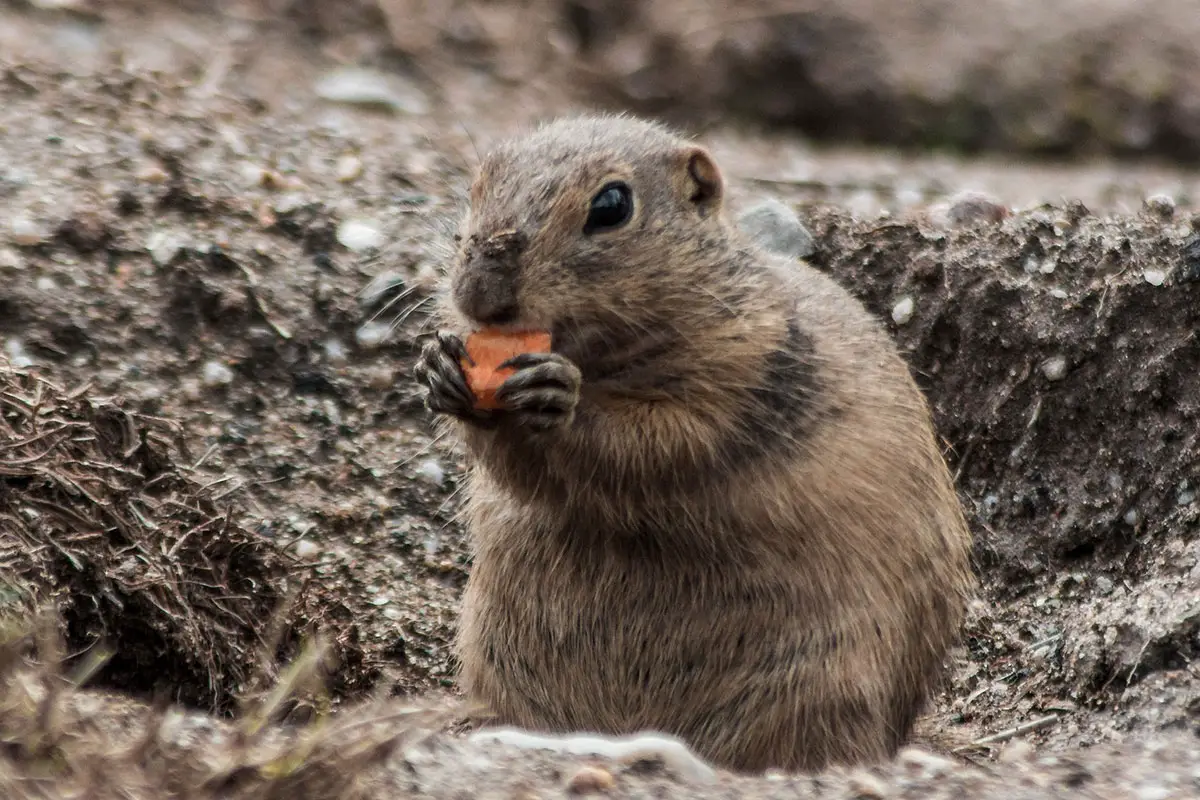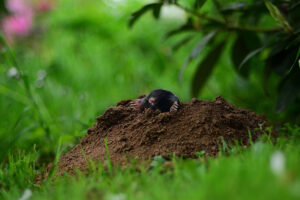This page may contain affiliate links. If you click and buy, we might get a small commission at no cost to you.
Lawn maintenance and planting gardens take time and effort. So, to wake up one morning and find holes, scattered dirt, and flipped turf on your property can be a shocking discovery. Not only is this unsightly, but the random holes can be a safety hazard when someone trips over an uneven surface. So then how do you stop animals from digging holes in your yard?
Most of the animals creating this mess are attracted to your yard because of food sources. They will keep returning if they’ve feasted there once before. Luckily there are things you can do to stop animals from digging holes in your yard, and we’re going to cover 8 proven tips in this article!
How to Stop Animals From Digging Holes in Your Yard – 8 tips
So how do you prevent these animals from sneaking out at night, digging holes, and ruining your lawn and gardens? Here are 8 tips to stop them.
1. Add a physical barrier
First off, you want to make sure the animals aren’t able to enter your yard in the first place. If you don’t have a fence, consider putting one up. Make sure it goes down at least 6 inches into the ground to prevent animals from digging under to enter.
If you already have a fence, check it for any gaps or entryways and put up chicken wire to close off those spaces. You’ll want to check your property first before putting up physical barriers, so you aren’t accidentally keeping the animals trapped in your yard.
For your vegetable or flowerbeds, consider creating a wire mesh fence to protect your plants from being dug up or eaten. This, too, should go at least 6 inches into the ground.
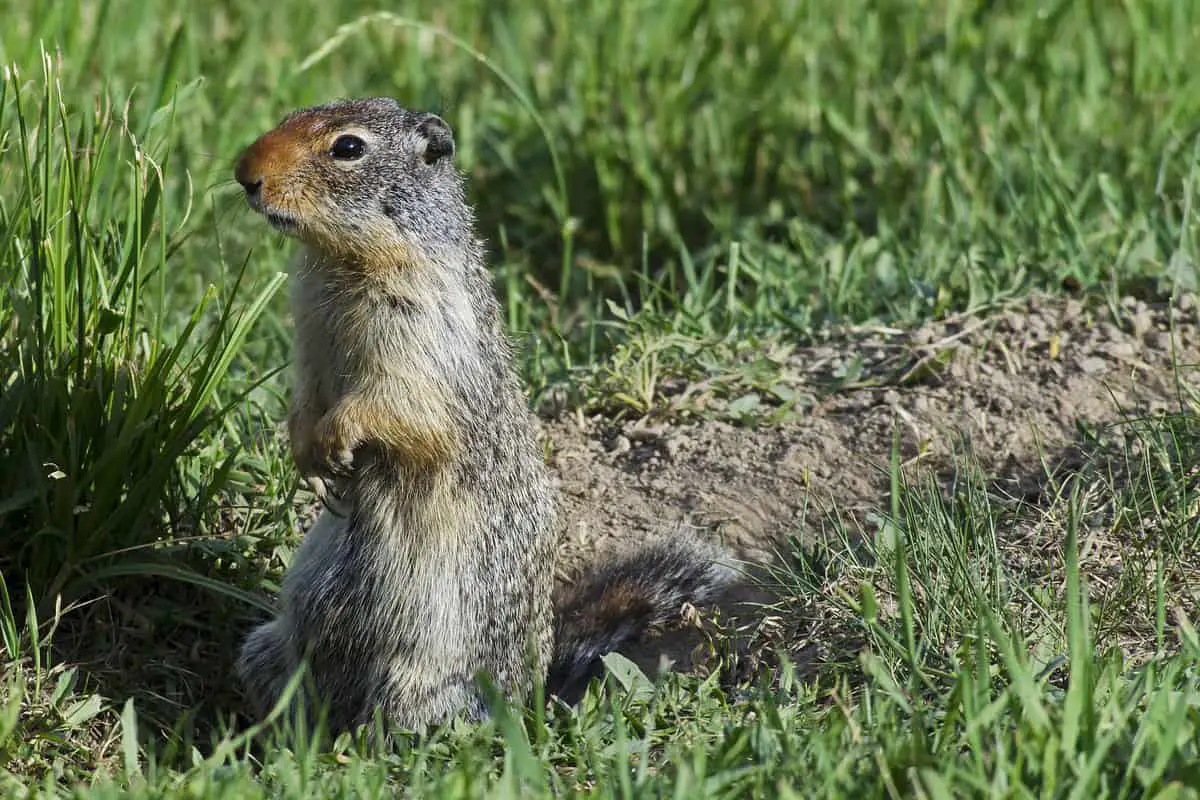
You can also use hardware cloth if you don’t want to build a fence but still want to protect your plants and their root systems. Fold the cloth to make baskets and place your plants in the basket before refilling the hole with soil.
2. Install strong lights
Since skunks and raccoons are nocturnal and will dig up your yard at night, installing some strong lights can deter them from entering your yard.
Most nocturnal animals prefer to stay out of the spotlight and become scared of bright lights resembling daylight. You can purchase flood lights or motion sensor lights to accomplish this.
3. Use ultrasonic devices
Sound products that send vibrations into the ground will help keep burrowing animals away or chase them out of their holes. For example, sonic spikes emit high-frequency noises through sonic pulses penetrating the ground every 30 seconds.
Simply place them near burrows or in various areas around your yard. A solar-powered device can typically last for 4 days on 4 hours of sunlight charge. Here’s an example of one you can order on Amazon.
4. Get rid of grubs
Grubs are one of the main reasons wild animals like skunks and raccoons will dig up your yard. They are larvae of various beetles and have rounded c-shaped white, gray, or yellow bodies. Since they feed directly on grassroots, they can also damage your yard and cause brown patches.
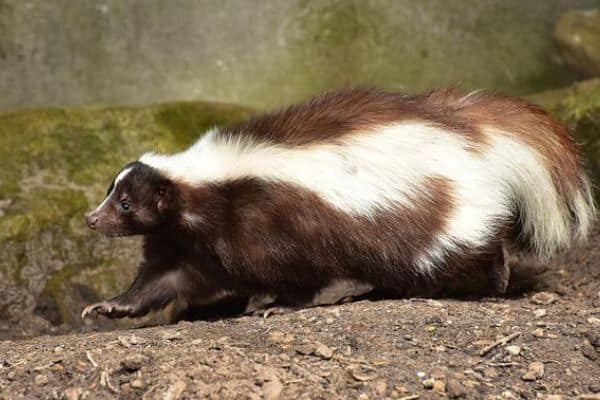
You can identify if you have grubs in your yard by applying a mix of liquid dish detergent and water to potentially affected areas. Within a few minutes, the grubs should come to the surface. Then you can apply a grub killer product to get rid of them within 24 hours.
5. Alter your soil conditions
Another method to get rid of grubs is to change your soil conditions so the grubs can’t survive. Consider adding nematodes to your grass or soil. These living organisms will enter the grubs’ bodies and kill them with released bacteria. You can also add milky spores to your soil, creating a bacterial milky disease environment that will kill off the grubs.
Grubs also need water to survive, so if you live in a hot area and stop watering your lawn for a month, you can kill them off due to drought. Once the grubs are gone, watering again will typically revive your lawn.
6. Remove food sources on your property
Wild animals can initially become attracted to your yard and return if they’ve found the food there before. Besides grubs, they will also dig in the garbage or eat pet food left outside. Make sure to tightly seal and store your garbage cans as well as empty any pet food and water bowls before you go to bed.
You’ll also want to clear up your yard regularly. Clean up fallen fruit or anything in your yard that’s rotting and gives off a strong scent to attract animals. While you are at it, remove any areas they can use for covers, such as shrubs and woodpiles.
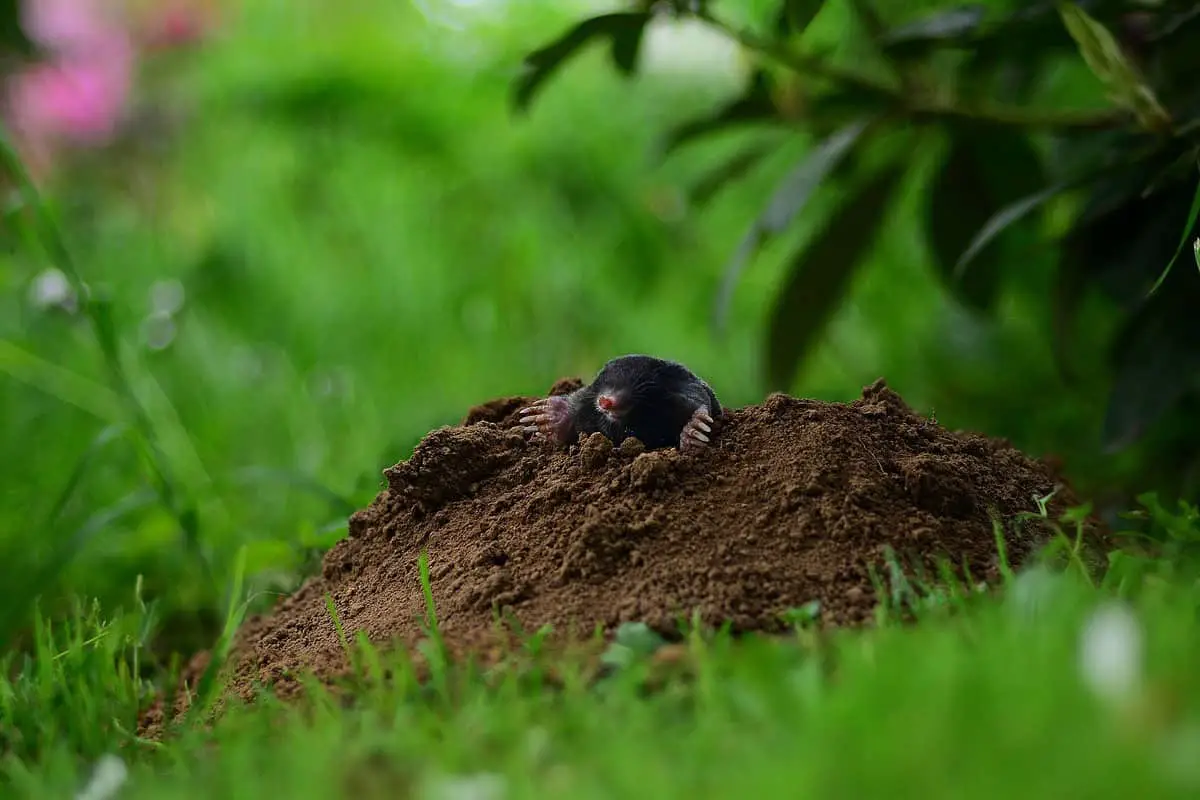
7. Use natural repellents
Suppose you see some burrows already in your yard. In that case, you can sprinkle coffee grounds or garlic powder around the entrance to deter the animals from staying.
To prevent rabbits from eating your vegetable and flowers, try making a garlic and chili mixture to spray on your plants. This includes:
- Mixing garlic powder with chilies and water
- Leaving the mixture for 2 or 3 days
- Straining the mixture and adding liquid dish-washing soap
If skunks and raccoons are your problems, try a natural animal repellent product, such as one with a peppermint formula. Spray it at least once a week around your yard to keep the animals away.
8. Call a wildlife control expert
If all else fails and you still have unwanted visitors like moles or gophers digging up holes in your yard, consider calling a wildlife control expert. These professionals can remove the animals, relocate them, and help you close off any entryways future animals might use to access your yard.
It can be useful to have an expert set up animal traps for capture since most are species-specific. They can confirm what culprit is in your yard and prevent you from building and setting up a trap for the wrong animal.
